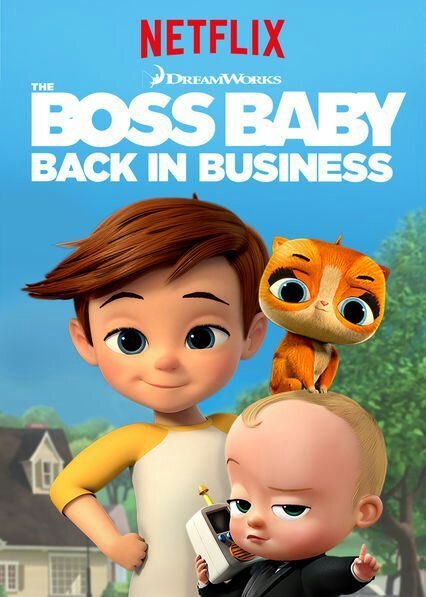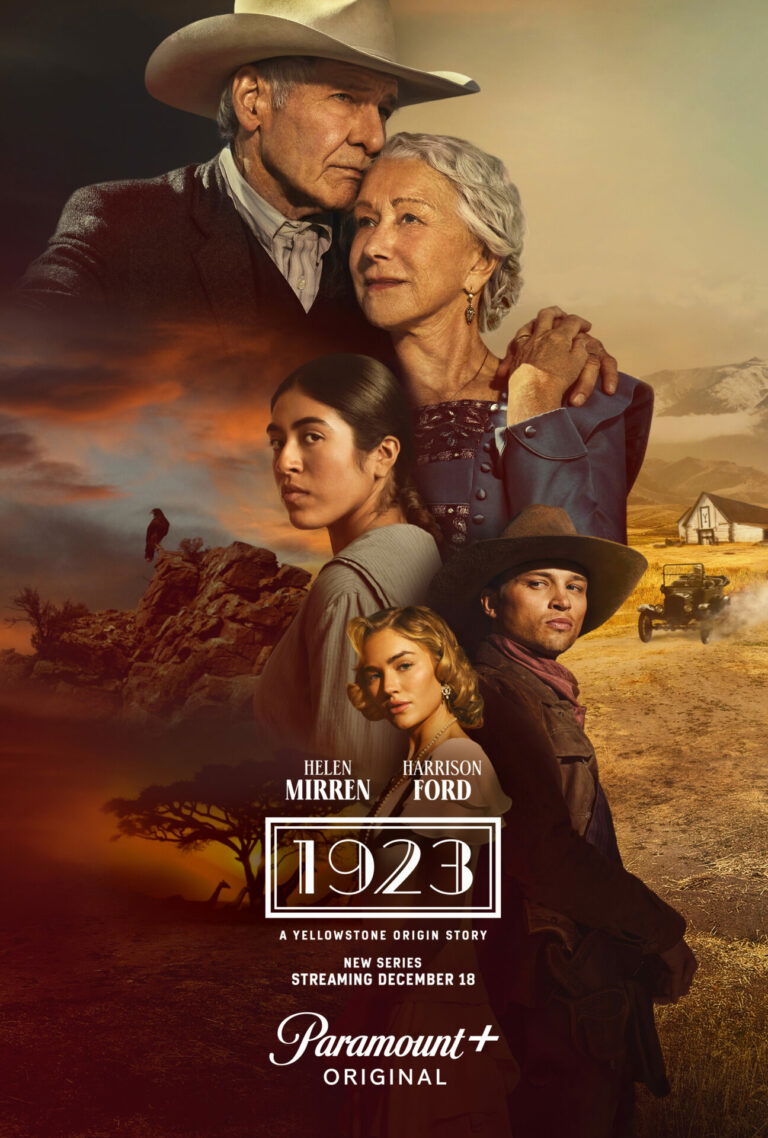“Intense Survival Stories”

| None | Light | Moderate | Heavy | |
|---|---|---|---|---|
| Language | ||||
| Violence | ||||
| Sex | ||||
| Nudity |
What You Need To Know:
Episodes 2 and 3 of 1923 match the premiere episode for grand excitement and drama. They have superb performances, excellent writing, expanding character arcs, and breathtaking cinematography. However, their moral, pro-family elements, which include two positive references to God, are marred by some immoral behavior. This negative content includes strong foul language, a bedroom scene with brief explicit nudity, brief drunkenness, intense violence, and a brief depiction of a Catholic nun’s perverse behavior. MOVIEGUIDE® advises extreme caution for these two 1923 episodes.
Content:
Strong mixed pagan worldview with pagan attitudes about survival, seeking pleasure and protecting your land and family from the violent, lazy greed of human beings mixed with strong moral, pro-family attitudes, including a biblical philosophy about the sinfulness of man, two strong positive examples of marriage between the patriarch and matriarch and the patriarch’s right-hand man and his wife, and two positive references to God in Episode 1.3, government mistreats American Indians by placing orphans and neglected children into government-funded assimilation boarding schools that abuse them, and the one bad example of a boarding school in the episodes is one that’s run by cruel Catholic priests and nuns, plus one of the nuns has a perverse homosexual lust toward the teenage girls at the school that’s shown in one scene in Episode 1.3, but there’s a reference to a Baptist day school for the Indian children which is mentioned as a preferrable situation by one Indian girl’s grandmother, plus the two episodes seem to have an ambiguous attitude toward free market capitalism (owning a ranch and protecting land/property are seen as positives, but one cowboy questions a 1923 salesman of electricity and two newfangled appliances, saying that if they start buying his electricity and renting such “conveniences,” people will be working for him rather than working for themselves), and there’s a reference to Darwin and evolution in one scene in Episode 1.3, put in the form of a question, and another character says people may have been living in Africa for a million years (in reality, the first two human beings began, at the very most, about 150,000 years ago, and probably less than 50,000, in the Persian Gulf area before the Great Flood covered the area with water)
Eight obscenities (including four anachronistic “f” words), one GD profanity and two light profanities in Episode 1.2 and 11 obscenities (including two “f” words), one GD profanity and five light profanities in Episode 1.3
Strong violence with some blood in Episode 1.2 includes a man is attacked by a leopard, but he fends off the big cat (cuts with dried blood are shown afterward), leopard attacks another man, and the man’s throat is ripped open by a leopard (mangled throat shown with blood), a man pistol whips another man (some blood on his face), young woman at a Catholic boarding school for American Indians fights a physically abusive nun and is put into a punishment box outside overnight, the nun the young woman fought later beats her with a ruler and threatens her life if she ever hits her again, nuns slap girls at the boarding school for making mistakes, a small gunfight breaks out when cowboys find sheep herders attacking the boss’ son on the family’s land, the father puts hanging ropes around the Scottish leader and four other men and leaves them there hanging for dear life onto their horses, another scene shows the sheep herd leader escaping the hanging rope but the other four men lost their horses and are hanging dead from the tree while he escapes, and strong violence with blood in Episode 1.3 where an angry elephant turns over a jeep with a man and woman in it before he shoots and kills it, the man shoots many lions from the branches of a tree during the night before vehicles arrive to rescue them, a gunfight occurs between the Duttons, his men and the sheepherders from Episode 1.2 (the leader of the sheepherders brings a machine gun) where two men are killed, one wounded man has to be operated upon, a young woman suffers a gunshot wound to the stomach and is being operated on, several sheepherders are shot dead, older woman kills wounded man after she runs after him into the woods (he went for his gun while she had to reload her shotgun)
Lesbian behavior in one scene in Episode 1.2 where a Catholic nun gets excited while washing the upper chest area of a young American Indian woman in tub who’s just been brought into a bunkhouse area of a boarding school on the prairie after Indian woman was beaten and deliberately left in a small punishment shed outside for two or more days but older nun enters and stops it, and Episode 1.3 has a scene with strong passionate kissing between an unmarried young man and young woman who are undressing each other in a hotel room (flashes of partial female nudity are shown as the kissing continues, but no actual intercourse is depicted), and an engaged couple passionately kiss each other outdoors, and fornication is implied and briefly mentioned later, but not shown
Upper male nudity in Episode 1.2 and two or so brief flashes of upper and rear female nudity in Episode 1.3 in an implied fornication and depicted kissing scene with partial explicit nudity, and some 1920s dresses are quite revealing
A man drinks whiskey to ease the pain of some bloody wounds, lots of people drink in an underground tavern, and some are clearly drunk, a young man and woman drink in an underground tavern and seem a bit tipsy, an engaged man and woman drink hard liquor to ease their fear of impending death
Some smoking but no drugs; and,
An Scottish man, having cut his neighbor’s fence under cover of darkness, grazes his sheep with his men on the neighbor’s land with no intention of telling him about it, but neighbor and his men find out and capture the men and kill a few and take the sheep to give to the Indians on the nearby Indian reservation, plus an engaged young woman in an arranged marriage flirts with an unmarried man who seems a few years older than she, and she shortly runs off with him, but they get engaged quickly.
More Detail:
Episode Two, titled “Nature’s Empty Throne,” follows up on the cliffhanger closing shot of Spencer’s battle with a huge African leopard from the pilot episode. Spencer, who was raised by Jacob and Cara when his parents were killed, fights off the leopard, but a second leopard suddenly attacks and kills Spencer’s best native guide and friend.
This tragedy is followed by comedy, as Spencer, Jacob’s youngest adopted son, is sent to Tanzania, to hunt a man-killing hyena in the Serengeti, but not before comically rescuing a young British woman named Alexandra from an arranged marriage. “Find someone who loves you,” she shouts to her former fiancé as Spencer and a driver whisk her away in a fancy white car. Spencer agrees to let Alex come with him, but the decision puts her life in danger.
Back in Montana, Teonna the American Indian continues to suffer at the hands of the nuns and sadistic priest of the government-funded Catholic boarding school while desperately seeking a means of escape. Her grandmother tries to transfer her to a nearby Baptist day school on the Reservation but runs into red tape form the officious federal bureaucrat who runs the boarding school program for Indian children.
Meanwhile, a long drought has hit the area. So, Jacob, his eldest nephew, John, John’s son, Jack, and their cowboys push the Dutton cattle up into the mountains to graze them there on the family’s land. However, the Scottish sheepherder, Banner, and his men have beaten them to the grass with his men. They shot Jack’s horse dead and are about to kill Jack when Jacob, John and their men ride to the rescue. After Banner and his men surrender, Jacob decides to send a message that will have dire consequences for everyone involved.
Jacob, John, Jack, and all but three cowboys return to the ranch to their wives, and, in Jacks case, to his fiancée. The family decides to travel to Bozeman city to celebrate the end of the cattle drive. In the city, the women are treated to all the salesmanship chicanery of the rapidly modernizing age. However, the next morning, they must face the violent consequences to Jacob’s decision to send a message to the Scottish interlopers and any other man who tries to take his land.
These sophomore and junior episodes push the compelling story forward, achieve good character development, and leave viewers anticipating the next episode. Production values are very high with series creator Taylor Sheridan’s stellar writing staying strong, character arcs moving steadily forward, and cinematography reaching new heights with superb shots of Montana mountain ranges and passes, juxtaposed with shots of African thorn trees and animals on the Serengeti plain. Not counting the objectionable content in the two episodes, the story remains riveting, with very little wasted space and taut editing that makes every scene count. Also, viewers begin to get a deeper sense of the time and setting of the series, now a hundred years in the past, when the wounds of the Great War were still raw, and, as Jacob says of ranching, life in general is always tough because, “Easy wasn’t in the job description.”
Episodes Two and Three of 1923 have a mixed worldview where pagan attitudes and behavior are mixed with moral ones. For example, Jacob sees the world as dog eat dog because men are too greedy and too lazy to build their own life but are always ready to steal the life and land of other men. However, Jacob Dutton has a strong marriage with Cara while John has a strong marriage with his wife, Emma. Also, Episode Two has two positive references to God, which contrasts with the poor example set by the Catholic priest and nuns. Finally, swift justice is meted out to the Scottish sheepherders who moved their neighbor’s landmark (see Deuteronomy 19:14) and to the man who was about to shoot Jack dead. The show’s narrative also demonstrates, though, the results of a cycle of violence which has no higher arbitration than two men opposed to each other.
The third episode wisely casts doubt on the so-called progress of the early 20th Century in conversations between Cara and Jacob, where the two are shown to have a very strong marital relationship and much of the modern world’s commercial development is critiqued, including washing machines, refrigerators and razors for women. For example, Cara thinks greed has led businesspeople to convince women they need to shave their legs. Also, John, her eldest adopted nephew, tells an electricity, washing machine and refrigerator salesman that, if people buy electricity and rent appliances from him, they’ll be working for him, not working for themselves.
However, Episodes Two and Three of 1923 are marred by strong foul language, a bedroom scene with brief explicit nudity, brief drunkenness, intense violence, and a depiction of a nun’s perverse lesbian feelings. Though the bad treatment of Indians in the Catholic boarding school reflects badly on Roman Catholics, it was a sad but true part of the boarding school program for Indians in the Midwest that was administered by the federal government and often operated by churches. That said, the Indian grandmother in the series seems to have a positive attitude toward the Baptist day school on the reservation.


 - Content:
- Content: 
